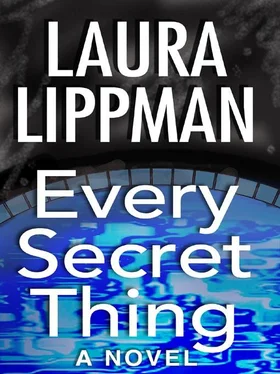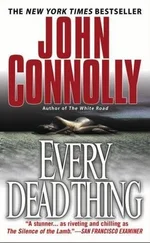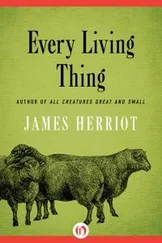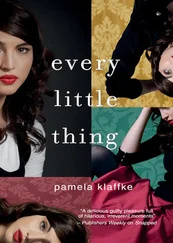But if she’d had it to do over, she would never have contradicted the top editor when he referred to her as Meera. “It’s Mira,” she had said automatically, and then realized her mistake. Nostrildamus, as the editor of the paper was known behind his back, had been disturbed to be in error even on something as innocuous as the pronunciation of an unusual name. Mira got the job, but she was left with the distinct feeling that if Nostrildamus-then known to her only as Willard B. Norton-wanted her to be Meera, she should have agreed to be Meera.
She had tried to make up for that early blunder by cracking the code of this particular workplace culture, as she had done in high school, college, her internships, and her previous job. By every measure, she had much of what was required for success here-she was young, hardworking, and pretty in the right way. The right way being interpreted, as everything about Nostrildamus was interpreted, by inference and example. Judging by the women he hired, he preferred a skinny kind of prettiness, not too flamboyant and not overtly sexual. He also liked the females to solicit his opinion on all matters, large and small, to treat him like a father figure. The young women agreed it was creepy, but innocuous, the kind of gray area flirtation that had long been part of their pretty young lives.
After that disastrous first meeting, Mira had styled herself after the paper’s most successful reporters. She had made appointments to “drop by,” seeking his story ideas, asking for his career advice. If he had called her Meera again, she would have let it stand, but instead it seemed his gaffe was what he remembered. “Why, it’s Mira with an i,” he said when she entered his office. He said it in the hallway, if she happened to pass him by, and on his infrequent visits to the bureau. She began to wonder if he knew anything else about her.
When she asked him where she might go next, when she spoke of being ready for new challenges and bigger beats, he became vague and distant, as if she were a telemarketer he wanted to brush off politely: “It’s my observation that people here don’t spend enough time on their beats, don’t hunker down and really learn the ins and outs of beat reporting. I predict”-he was big on predicting, which explained half his nickname; he would even hold his index finger aloft, a regular Mr. Wizard-“I predict you will have plenty of time to do other things.”
“And until then?”
“Let’s keep giving those neighborhoods the careful attention they deserve. Go to community meetings. Take local activists to lunch. Build up your Rolodex, develop sources. Neighborhoods are the building blocks of society, the DNA of Baltimore.”
“Yes, but neighborhoods aren’t as defined in the county as they are in the city,” she ventured, making sure it sounded more like a question than a challenge. Speaking with Nostrildamus was a variation on Jeopardy! Every answer had to be in the form of a question. He simply nodded, assuming agreement in her voice. Sometimes she wasn’t sure that Nostrildamus heard the actual words that came out of her mouth, or anyone’s mouth. His responses didn’t quite match up. Something seemed to go dark inside him when another person spoke, as if he left his body through astral projection and returned only when it was his turn to take the helm of the conversation.
“Yes, indeedie,” he said, being the kind of man who said “indeedie” and “awesome be dawesome,” and, most mysteriously, “Thanks for the college knowledge.” “Neighborhoods are the DNA of our city, and you have to see yourself as one of the scientists trying to crack the genome.”
She nodded earnestly, staring up into the black, bottomless holes of his nose, which accounted for the other half of his nickname. He had remarkably large nostrils, and because of the way he held his head while speaking, his reporters were forced to gaze into them.
“Watch out for him,” an older reporter had told Mira in her early weeks. “He’ll send you to the cornfields.”
“What?”
“That’s right, you’re too young to remember The Twilight Zone . There’s a little kid with psychic powers who holds a whole town in thrall because he punishes anyone who doesn’t do exactly what he likes. What he likes is the same food day in, day out, with a birthday party at the end of every day. And no contradictions. If he even catches you thinking contrary thoughts, he’ll send you to the cornfields, which means you’re as good as dead.”
Mira had shrugged, bored as usual by the baby boomer habit of referring to things from their youth. The Twilight Zone . Jesus. Why not The Honeymooners, why not Fibber McGee? The way she saw it, anyone who remembered black-and-white television should have the good sense to read a few magazines, keep up with what was going on now.
Nostrildamus couldn’t send her to the cornfields because she was already there. But he could keep her there for her mistakes. The irony was, That Story was his fault. But only he and Mira knew this. Nostrildamus was the one who had passed the handwritten letter along to her, with his distinctive red printing: Just a suggestion, but this looks very interesting.
Just a suggestion was widely understood as Do it now, so she had knocked herself out. She had driven to the Woodlawn neighborhood and interviewed an elderly black man about his role in desegregating a nearby amusement park, Gwynn Oak. Almost forty years after the fact, the man wanted to buy the abandoned property, which remained behind fences, a wild and implausible place in a once-suburban neighborhood that was going rapidly to seed. He described a vision of a public park, with statues to civil rights leaders. All he needed, he said, was start-up money. He was even willing to mortgage his own modest home to get the ball rolling. That had been his phrase-to get the ball rolling.
The story had run off the front on Martin Luther King Jr.’s birthday, and the only ball that rolled had been the one that flattened Mira’s career. The calls had started at 7 A.M., overwhelming the morning cop reporter, the only person in the office early on a holiday morning. Mira’s subject was a penny-ante con artist, hopelessly delusional. On the day the civil rights protesters had marched on Gwynn Oak, he had been serving time for larceny. His dream may have been true, but little else in the story was. He didn’t even own the house he was willing to mortgage.
Who would lie about such a thing? What was the point? “If your mother says she loves you, check it out,” one of the older reporters told her, in seeming sympathy, but Mira suspected he was rejoicing at her blunder. Although neither she nor her story was cited in the subsequent memos and workshops, everyone knew why they were being reminded to run criminal record checks and pull the clips. If Mira had compared her source’s stories to the original coverage, she would have seen he was wrong on several key details.
The Saturday night cop shift had been her self-selected penance. She had cut a deal with Nostrildamus and the secretary who kept the pay sheets, agreeing to work six days a week for straight-up comp time instead of overtime. Comp time the bosses knew she would never take, because she didn’t even use up her two weeks of vacation time. That was another part of the culture here: no one got ahead by taking time off. If the union knew about her arrangement, they would shit, but the union took twenty-two dollars a week out of her paycheck and what did it do for her? Oh, they had been ready to defend her when she screwed up, but that was more for them than for her. The union wasn’t going to get her downtown full time. If Maryland law had allowed it, she would have quit or refused to pay the dues. Then Nostrildamus would know where her true allegiance lay.
Читать дальше












